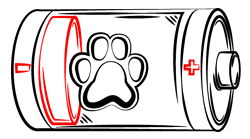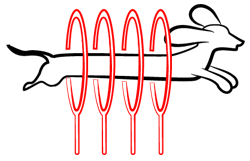
Paws ‘N’ Pups Quickview
Size
| Energy Level
| Trainability
| Paws ‘N’ Pups Rank
|
Characteristics
| Physical Characteristics: Height: 10-12” Weight: 10-30 lbs. Energy Level: Low | Colors: The Daisy Dog is found in the following colors:
|
Health & Longevity
Average Life Span: 13-17 years
Since the Daisy Dog is a hybrid breed, there are some health issues and concerns that you need to be on the lookout for. It is important to understand since the Daisy Dog is a hybrid breed, your pup can inherit a disease or hereditary condition from either side of the gene pool.
Some of the most common diseases and conditions seen in the Daisy Dog include bloat, epilepsy, hip dysplasia, infections, dental conditions, patellar luxation, eye problems, skin allergies, and Cushing’s Disease.
Bloat is a condition that often occurs when too much gas builds up in the stomach. The gas causes the stomach to swell, which places too much pressure on the other organs within the body. The causes of bloat are unknown, but veterinarians think that it can be caused by eating or drinking too quickly, too much exercise or excitement after eating, and basically, swallowing too much air. This condition can be fatal, if not caught and treated right away.
Epilepsy is known as seizures and can occur in the Daisy Dog. The condition is often due to environmental factors, but it can be hereditary as well. Seizures can range from mild to violent, with a lot of convulsing and foaming at the mouth.
Hip dysplasia is another common condition and happens when the hip joint is deformed or does not fit into the socket the way it should. Over time, the cartilage that protects the joint is worn down and causes pressure on the joint. This condition can make it difficult for your Daisy Dog to stand up and move around.
Infections occur in the Daisy Dog and can present themselves as an ear infection, eye infection, or skin infection. These infections often occur due to the environment and are treatable.
Patellar luxation is another commonly seen condition in the Daisy Dog and is characterized by the dislocation of the knee. This condition can be painful for your pup and is more common in females than in males.
Lastly, Daisy Dogs can have Cushing’s Disease, which is a disorder that is characterized by an increase in cortisone. The increase in cortisone production is caused by a tumor, benign in nature, on the pituitary gland.
The Daisy Dog’s life expectancy is 13 to 17 years.
Temperament & Train-ability
The Daisy Dog can be best described as a loving companion dog. This breed makes a wonderful family pet as he or she is tolerant of children and gets along easily with other animals in the home.
Your Daisy Dog will curl up in your lap and sleep while you go about watching TV or reading a book. You can also expect him or her to sleep next to you in bed, as they like to cuddle by nature.
This breed is intelligent and is quite eager to please his or her trainer, which also means that he or she is easy to train. You can expect your Daisy Dog to quickly pick up on your commands and even fetch the ball that you throw. With positive reinforcement and love, you can train your Daisy Dog quickly and effortlessly.
The Daisy Dog does like attention and it is not recommended that you leave him or her alone in the house. You do not need to walk your Daisy Dog many times throughout the day, but a single long daily walk should be sufficient.
Do keep in mind that early socialization with your pup is an important step in the training process and will produce a happy and healthy pup, who is not fearful or aggressive.
Grooming
The Daisy Dog is a wonderful option for those who suffer from allergies because this breed does not shed and is considered hypoallergenic. This breed is relatively low maintenance and does not require excessive grooming.
You should brush your Daisy Dog’s coat two to three times per week to avoid mats and tangles. Your Daisy Dog will need to have a bath when he or she gets dirty.
Cleaning of the ears is essential to avoid an ear infection and nail trims are recommended to avoid breaking and splitting.
Diet
Your Daisy Dog is considered a small breed, so it is important that you feed him or her with a food that is appropriate for his or her size and activity level. It is recommended that you feed this breed one to two cups per day, divided into two meals.
When choosing dog food, you want to choose a brand that does not contain any chemicals or by-products and one that has wholesome ingredients such as corn, vegetables, rice, and some type of meat.
If you are unsure of what type of food to feed your Daisy Dog, speak with your local veterinarian to get some recommendations.
You can feed your pet wet food occasionally, but do not rely on it as the main source of food, as this can cause obesity. In addition, wet food is not good for your dog’s teeth.
Looking for a Daisy Dog?
 Find A Daisy Dog Breeder |  Daisy Dog Puppies For Sale |  Adopt A Daisy Dog |
Cost
The cost of a Daisy Dog will vary depending on the breeder you choose and the sex of the dog you choose. You can expect to pay anywhere between $850 and $3,000 for this breed.
In addition to the cost of the puppy itself, you can expect to spend anywhere between $350 and $550 annually on your pup’s vet care, which includes checkups and vaccines.
Additional care for your pup can run you anywhere between $500 and $1,000 annually.
Paws ‘N’ Pups Ranking
Paws ‘N’ Pups ranks every breed out of 4 with 1 being easiest to integrate into your life and 4 being the toughest – The lower the ranking the better.
Ranking takes into account a few basic factors including cost, skill level needed, high vs low maintenance and how critical regular training is to success. The Daisy Dog is a playful pup that likes to cuddle and will provide you with the love you desire as your companion. This breed is easy to train and care for, but can be expensive to purchase. This breed ranks a 2.
Breeds Similar To Daisy Dog
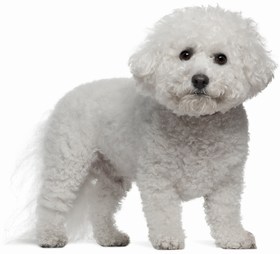 Bichon Frise | 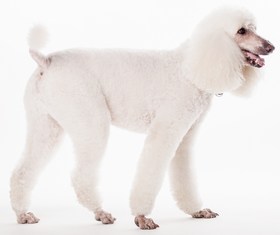 Poodle | 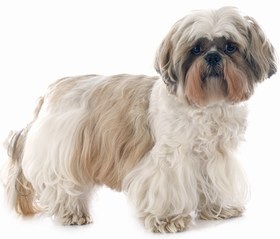 Shih Tzu | 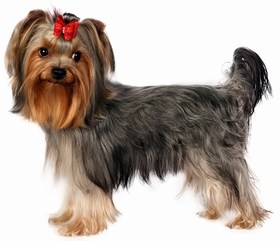 Yorkshire Terrier |


